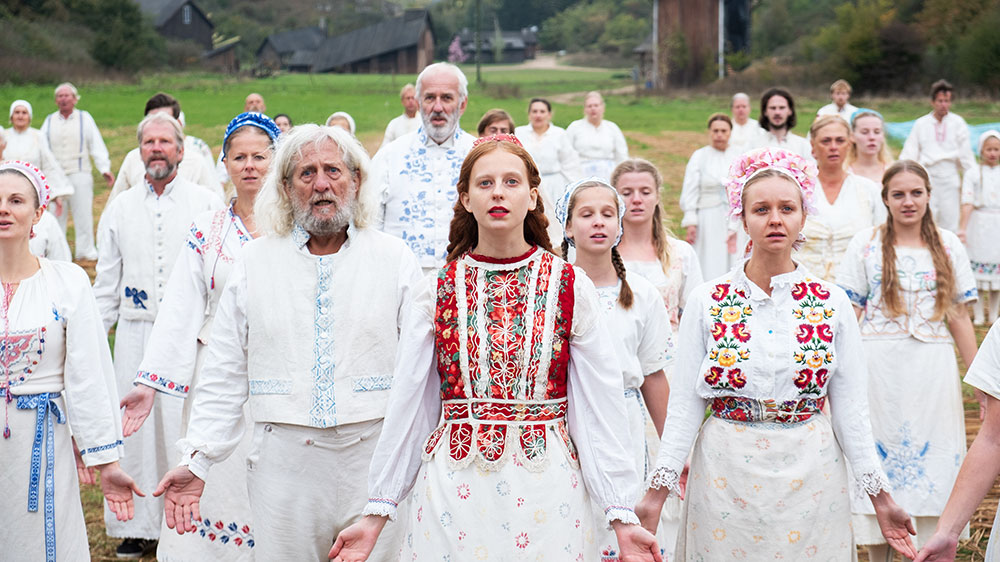American writer and director Ari Aster announced himself last year with the release of Hereditary. An absorbing, yet unsettling horror in the vein of 70s classics The Exorcist (1973) and Don’t Look Now (1973), his debut was a critical and commercial hit and one of the best films of 2018. A year on and Aster delivers his much-anticipated follow-up, the folk horror, Midsommar.
College couple Christian (Jack Reynor) and Dani (Florence Pugh) are going through a rough patch and are on the verge of breaking up when a horrific incident occurs in Dani’s life. Feeling an obligation to his girlfriend, Christian sticks it out with Dani, although he shows the emotional level of a slug when he books a trip to Sweden without her. Reluctantly inviting her along, Dani joins Christian and a few friends as they journey into the Swedish countryside to celebrate a ‘midsommar’ festival that occurs every 90 years at the commune where their friend Pelle (Vilhelm Blomgren) was brought up.
It’s here the group begin to immerse themselves in the festivities and quickly find out that things aren’t what they seem. To go into any more detail would be to ruin the film, but it’s safe to say things go downhill fast when the community begin their rituals that include taking psychedelics, extreme violence, perverse sexual practices and lots of death.
Midsommar is very much a modern-day The Wicker Man (1973), with the group witnessing strange pagan rituals as they begin to find themselves playing a major role in the activities, with Aster once again proving himself an incredible filmmaker. Similar to Hereditary, a film about family with a horror backdrop, Midsommar can be seen as a breakup movie set in the horror genre. The slow disintegration of Christian and Dani’s relationship is played out across the nine-day festival, with Dani slowly taking back the power and regaining her identity before the fiery climax.
Visually stunning, cinematographer Pawel Pogorzelski uses the gorgeous landscapes and warm tones to create a lush pallet of colours that goes against the usual horror archetype of making things as dark as possible. Setting the film during the Swedish summer when there are only a few hours of darkness might seem strange for a horror, but it adds to the creepiness of the plot and helps illuminate the terror to come.

The sudden bursts of violence throughout are becoming a trademark of Aster’s films, but nothing ever feels forced or unnecessary, with each death or macabre ritual pushing the story forward. Similarly, the soundtrack by Bobby Krlic achieves the same result, with the menacing instrumental tones of Krlic’s score heightening the feelings of fear and paranoia that drive the group towards the upcoming horror that awaits them.
The acting is top-notch, with Pugh incredible as the grief-stricken Dani. Fully embracing the character’s struggles, Pugh’s performance is award-worthy, positioning her as an actress with an exciting future. Reynor is equally as good as her scumbag boyfriend Christian, with Will Poulter bringing a few laughs to an otherwise serious film.
Coming in at almost two-and-a-half-hours, Midsommar plods along at a terrifically slow pace. While younger viewers that are used to jump scares and fast editing might get bored quickly, the slow reveal of the commune’s true intentions is engrossing, leading to a powerful and thought-provoking finale.
Intelligent, visually spectacular, gripping and shocking, Midsommar makes it two-for-two for Aster, who proves he may be the next modern-day horror master.
Fun Fact:
The character Mark displays a phobia of ticks, which is based on Ari Aster’s real-life fear of bugs.




COMMENTS